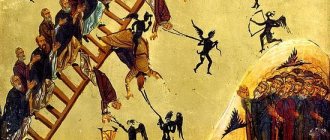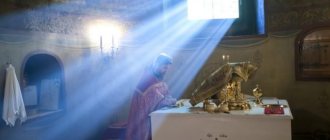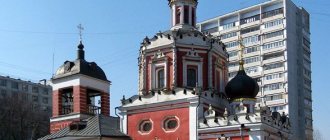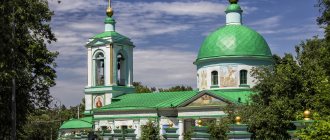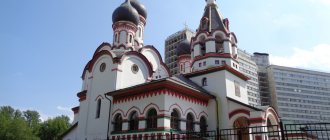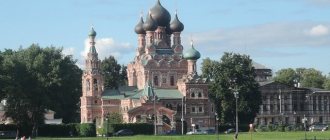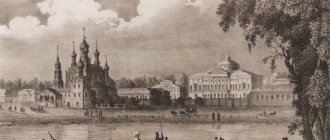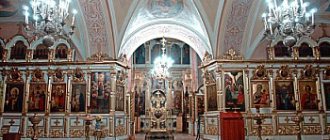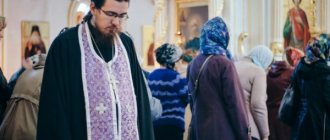Telegram channel @ieshua.org
The word Emmanuel is very closely associated with this season because one of the most amazing Messianic prophecies reads:
“Therefore the Lord Himself will give you a sign: behold, a virgin will be with child and give birth to a Son, and they will call His name Immanuel.” (Isa. 7:14)
Immanuel, Emmanuel, Emmanuel - like the word Hanukkah, it has several ways of being pronounced in English (and Russian), but in Hebrew it is two words: עִמָּנוּ אֵל - God is with us.
The promise to come and be with us did not suddenly appear in Isaiah 7—God's purpose to come and live among us is evident throughout Scripture. He thought it over carefully and planned His visit.
Temporary Tabernacle of Meeting
In the Garden of Eden, God and Adam walked together in the cool of the day. The intimate relationship that God once had with humanity is what His heart has longed for and yearned for since it was lost. God's love for us and desire to be with us is demonstrated in action because He has created the conditions in which sin can be dealt with so that relationships can be restored:
“And I will make My dwelling place among you, and My soul will not abhor you; And I will walk among you and will be your God, and you will be My people.” (Lev. 26:11-12)
We see God literally pitching His tent in the midst of the Israelite camp, with a fully functioning system for removing sin , so that He could be among them. He walks with them, accompanying them with a pillar of cloud and fire, making His desire for intimacy abundantly clear.
But God had a grand plan, much greater than a temporary tent:
“Rejoice and be glad, daughter of Zion! For, behold, I will come and dwell in your midst, says the Lord. And many nations will flee to the Lord in that day, and they will be My people; and I will dwell in your midst, and you will know that the Lord of hosts has sent Me to you.” (Zech. 2:10-11)
This wonderful prophecy is pronounced by the Lord, but read it again carefully...
He says that the Lord sent Him.
God will come and live among us, and at the same time the Lord sent Him! Like this?
We see this again in the prophet Isaiah:
“Come to Me, listen to this: I did not speak in secret at first; from the time this happens, I have been there; and now the Lord God and His Spirit have sent me.” (Isa. 48:16)
This plan of God sending God to live among us has been around since the beginning of time. The Eternal One, who existed from the beginning, was sent by the Lord and His Spirit. How do you like this?
This time it was in person. It is no longer just meaningful symbols and prophetic hints in a specially built Temple - God himself comes. And He was sent by God.
Story
The icon dates back to the middle of the 12th century (V.I. Antonova, N.E. Mnyova) or its end (V.N. Lazarev). According to Academician Lazarev, the icon could have been painted by the masters who painted the St. Demetrius Cathedral in Vladimir at the invitation of Prince Vsevolod the Big Nest[1]. Art critic G. S. Kolpakova dates the icon to the last third of the 12th century, connects its origin with Vladimir Russia and especially notes that the size of the icon fits perfectly into the span of the altar of the Church of the Intercession on the Nerl[2]. According to V.I. Antonova, the icon is of Novgorod origin[3].
The icon was brought from Vladimir to Moscow in 1518 for renovation and remained in the Assumption Cathedral of the Moscow Kremlin, where it was located above the northern doors of the iconostasis leading to the altar. Entered the Tretyakov Gallery from the Armory Chamber in 1936. In the same year it was discovered by I. A. Baranov.
Disguised Royal Visitor
When I was in Jordan, I heard a story about how the king had heard reports of welfare officials who were mistreating their clients. As the story goes, the king himself disguised himself as a poor old man and approached clerks in various offices asking for help and favors. Whenever he encountered an official who was rude, disrespectful, and unkind, he would take him aside and reveal his true identity. He explained to the clerks exactly what they had done wrong and fired them. Needless to say, services improved significantly after officials realized that there was a possibility that they were serving the king himself!
At first, they did not even expect that the king would appear so modestly. So Israel, for the most part, did not recognize the time of the visit.
The King of Kings was right there in their midst, but disguised. He looked like an ordinary Jewish carpenter from Nazareth. I heard one child say that Jesus was “God with skin,” and that’s a pretty good simplified description of the incarnation.
The idea of being born of a virgin is so shocking that Jewish people understandably reject the idea that it could literally mean what is written (as do, to their shame, so many who call themselves Christians). But God is not someone who avoids something outrageous. He encourages people to believe. It goes without saying that He can do the impossible—He can do anything He wants to do. It also goes without saying that God, who created the universe, would not have come to His creation in the ordinary way. Even the Jewish sages said: “The Redeemer whom I will raise up among you will have no father” (Bereishit Rabbah / Commentary on the book of Genesis, Rabbi Moshe Hadarshan).
picture — ArtistIvanChew, “In a Manger”
God has revealed Himself, and that is His glory. God's glory came to us in the Messiah, in the person of Jesus, full of grace and truth because He is God Himself.
“And the Word became flesh and dwelt among us, full of grace and truth; and we have seen His glory, glory as of the only begotten of the Father.” (John 1:14)
Meaning of the Lord's name
Jesus is the modern church interpretation of the Greek form of the Hebrew name Yeshua, which combines two concepts - the name of God in the Old Testament and salvation.
The best article for you, go to: Canon of repentance to our Lord Jesus Christ
The name Yeshua was mainly given to boys in memory of the conqueror of the Earth, Moses' disciple Joshua.
The title “Christ” is an epithet that indicates the character of Jesus from a Christian perspective. The word itself means “anointed one.” This artistic trope was used back in ancient Israel and was related only to priests and kings. What is there reliable evidence for in the Bible?
Often in Orthodoxy one can come across the question of why Christ was named Jesus and not Emmanuel, if such information is known to a wide circle of believers.
Emmanuel is translated from Hebrew as “God with us.” This is one of the names of Jesus, which in general terms explains the meaning of the descent of the Son of God into the world. The second meaning is the iconographic image of the Lord, which represents Him at the age of a Youth, already marked with the seal of the ruler, filled with perfection in everything and the greatest spiritual maturity, hitherto unknown.
For the first time, the prophetic name Emmanuel was used in the prophecy of Isaiah, from where it began its journey.
Finally together again
God's great plan for the visitation was to pave the way for us to have an endless union with Him . He dealt with sin once and for all so that anyone who is willing could be cleansed of the sin that divides us and restored to a relationship with Him.
It's hard to imagine what our eternal abiding with GOD will look like. But I know that God is looking forward to this with great joy.
“And I heard a loud voice from heaven, saying, Behold, the tabernacle of God is with men, and He will dwell with them; they will be His people, and God Himself with them will be their God. And God will wipe away every tear from their eyes, and there will be no more death; There will be no more crying, nor crying, nor pain, for the former things have passed away.” (Rev. 21:3-4)
Source - oneforisrael.org Translation - Anna Ivashchenko for
Donate Last: 02/28. Thank you!
Subscribe: Telegram • Facebook • • • Twitter • Instagram • Youtube
Iconography
The icon depicts the “deesis mantle” - the Savior Emmanuel, surrounded by the archangels Gabriel (dressed in a blue chiton and a pinkish-lilac himation) and Michael (dressed in a pinkish-lilac chiton and a dark blue himation) bending towards him. Jesus Christ is dressed in an ocher chiton with a golden assist. For the face of the Divine Infant, a lighter carnation was used compared to the faces of the archangels.
Academician V. N. Lazarev [1]. In his opinion, Savior Emmanuel with angels is one of the most Byzantinizing monuments of Russian icon painting of the 12th century.
The icon did not retain the original golden background (only those above the shoulders of the archangels survived) and the pink halos (fragments were preserved near the outlines of the heads)[3].
The fields of the icon have notches for better fastening of gesso, traces of which are absent. It is assumed that the fields of the icon were originally decorated with a silver frame[2]. In the lower left corner on the field there is a red wax seal of the Kremlin Assumption Cathedral.
The icon is written on a linden board consisting of three parts[4]. The icon board has an ark and is fastened with vertical dowels.
Notes
- ↑ 1 2 Lazarev V.N.
Russian icon painting from its origins to the beginning of the 16th century. - M: Art, 2000. - P. 40-41. - ↑ 1 2 Kolpakova G.S.
Art of Ancient Rus': Pre-Mongol period. - M.: Azbuka, 2007. - P. 257-262. — (New history of art). — ISBN 978-5-352-02088-3. - ↑ 1 2 Antonova V.I., Mneva N.E.
Catalog of Old Russian painting of the 11th - early 18th centuries. Experience of historical and artistic classification. In 2 volumes. - M: Art, 1963. - T. I. - P. 65-66. - Painting of pre-Mongol Rus': Exhibition catalogue. - M: Soviet Artist, 1974. - P. 77-81.
| Novgorodskie | Ustyug Annunciation • Saint George • “The Sign” • Savior Not Made by Hands • St. Nicholas the Wonderworker • Golden Hair Angel • Tenderness • Cloudy Assumption | |
| Vladimir-Suzdal | Feodorovskaya Mother of God • Our Lady of Bogolyubskaya • | |
| 1Icons of disputed origin or dating are marked in italics | ||
Excerpt characterizing the Savior Emmanuel with the angels
– Andre, pourquoi ne pas m'avoir prevenu? [Andrey, why didn’t you warn me?] - she said with meek reproach, standing in front of her wanderers, like a hen in front of her chickens. – Charmee de vous voir. Je suis tres contente de vous voir, [Very glad to see you. “I’m so pleased that I see you,” she said to Pierre, while he kissed her hand. She knew him as a child, and now his friendship with Andrei, his misfortune with his wife, and most importantly, his kind, simple face endeared her to him. She looked at him with her beautiful, radiant eyes and seemed to say: “I love you very much, but please don’t laugh at mine.” After exchanging the first phrases of greeting, they sat down. “Oh, and Ivanushka is here,” said Prince Andrei, pointing with a smile at the young wanderer. – Andre! - Princess Marya said pleadingly. “Il faut que vous sachiez que c’est une femme, [Know that this is a woman,” Andrei said to Pierre. – Andre, au nom de Dieu! [Andrey, for God’s sake!] – repeated Princess Marya. It was clear that Prince Andrei’s mocking attitude towards the wanderers and Princess Mary’s useless intercession on their behalf were familiar, established relationships between them. “Mais, ma bonne amie,” said Prince Andrey, “vous devriez au contraire m'etre reconaissante de ce que j'explique a Pierre votre intimate avec ce jeune homme... [But, my friend, you should be grateful to me that I explain to Pierre your closeness to this young man.] - Vraiment? [Really?] - Pierre said curiously and seriously (for which Princess Marya was especially grateful to him) peering through his glasses into the face of Ivanushka, who, realizing that they were talking about him, looked at everyone with cunning eyes. Princess Marya was completely in vain to be embarrassed for her own people. They were not at all timid. The old woman, with her eyes downcast but looking sideways at those who entered, had turned the cup upside down onto a saucer and placed a bitten piece of sugar next to it, sat calmly and motionless in her chair, waiting to be offered more tea. Ivanushka, drinking from a saucer, looked at the young people from under his brows with sly, feminine eyes. – Where, in Kyiv, were you? – Prince Andrey asked the old woman. “It was, father,” the old woman answered loquaciously, “on Christmas itself, I was honored with the saints to communicate the holy, heavenly secrets.” And now from Kolyazin, father, great grace has opened... - Well, Ivanushka is with you? “I’m going on my own, breadwinner,” Ivanushka said, trying to speak in a deep voice. “Only in Yukhnov did Pelageyushka and I get along…” Pelageyushka interrupted her friend; She obviously wanted to tell what she saw. - In Kolyazin, father, great grace was revealed. - Well, are the relics new? - asked Prince Andrei. “That’s enough, Andrey,” said Princess Marya. - Don’t tell me, Pelageyushka. “No...what are you saying, mother, why not tell me?” I love him. He is kind, favored by God, he, a benefactor, gave me rubles, I remember. How I was in Kyiv and the holy fool Kiryusha told me - a truly man of God, he walks barefoot winter and summer. Why are you walking, he says, not in your place, go to Kolyazin, there is a miraculous icon, the Mother of the Most Holy Theotokos has been revealed. With those words, I said goodbye to the saints and went... Everyone was silent, one wanderer spoke in a measured voice, drawing in air. “My father, the people came and said to me: great grace has been revealed, myrrh is dripping from the cheek of the Mother of the Most Holy Theotokos...” “Okay, okay, you’ll tell me later,” said Princess Marya, blushing. “Let me ask her,” said Pierre. -Have you seen it yourself? - he asked. - Why, father, you yourself have been honored. There is such a radiance on her face, like heavenly light, and mother’s cheek keeps dripping and dripping... “But this is a deception,” said Pierre naively, who listened attentively to the wanderer. - Oh, father, what are you saying! - Pelageyushka said with horror, turning to Princess Marya for protection. “They are deceiving the people,” he repeated. - Lord Jesus Christ! – the wanderer said, crossing herself. - Oh, don't tell me, father. So one anaral did not believe it, he said: “the monks are deceiving,” and as he said, he became blind. And he dreamed that Mother of Pechersk came to him and said: “Trust me, I will heal you.” So he began to ask: take me and take me to her. I’m telling you the real truth, I saw it myself. They brought him blind straight to her, he came up, fell, and said: “Heal! “I will give you,” he says, “what the king gave you.” I saw it myself, father, the star was embedded in it. Well, I have received my sight! It's a sin to say that. “God will punish,” she instructively addressed Pierre.
